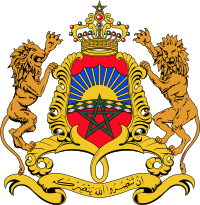
Photo from wikipedia
Why are state business relations in Egypt characterized by widely acknowledged high levels of cronyism? The purpose of this paper is to investigate the institutional factors explaining this research question… Click to show full abstract
Why are state business relations in Egypt characterized by widely acknowledged high levels of cronyism? The purpose of this paper is to investigate the institutional factors explaining this research question with a focus on pre-2011 Egypt.,Based on a general theoretical discussion, certain institutions were proposed as being responsible. A game theoretical model is then introduced. It explains why cronyism was the best strategy for various business players in contrast to aggregating and lobbying their efforts to obtain government available resources, whether these resources are energy subsidies, public banks’ credit or regulations. Then pre-2011 Egypt is discussed as a case study. This discussion is enriched by the available literature and empirical data.,Choosing cronyism was attributed to the presence of a weak and dependent private sector, where businesspeople are unable to aggregate their power; a relatively stronger government; poor governance performance; higher levels of regime legitimization practices, such as providing generous consumer subsidies; and economic growth caused by an increase in resources rather than by governance institutional improvement. A discussion of the available literature and empirical data on pre-2011 Egypt, going over the various proposed institutional factors, helped to support these arguments.,Further empirical evidence is needed to support and modify the suggestions of this paper. More detailed indicators would have further helped this research. Moreover, more case studies, other than the case of pre-2011 Egypt, are also needed. It is hoped that this paper would encourage further research endeavors that would cover these limitations.,Governance institutional reform is needed to minimize cronyism, especially institutions such as voice and accountability, rule of law, regulatory quality and control of corruption.,This paper can explain why high levels of cronyism are witnessed in many countries of the world, including the countries of the Middle East and North Africa (MENA). The region shares many institutional factors with Egypt. Governments in the MENA region have various sources of power with regard to their dependent private sectors added to the general poor performance in various governance indicators in the region.,The deep analysis conducted in this paper for the causes of Cronyism in Egypt has not been done elsewhere. This is also true for the whole MENA region. The introduced theoretical model is the first trial of this sort and should be important for future works on this topic in the MENA region and developing countries.
Journal Title: International Journal of Sociology and Social Policy
Year Published: 2019
Link to full text (if available)
Share on Social Media: Sign Up to like & get
recommendations!